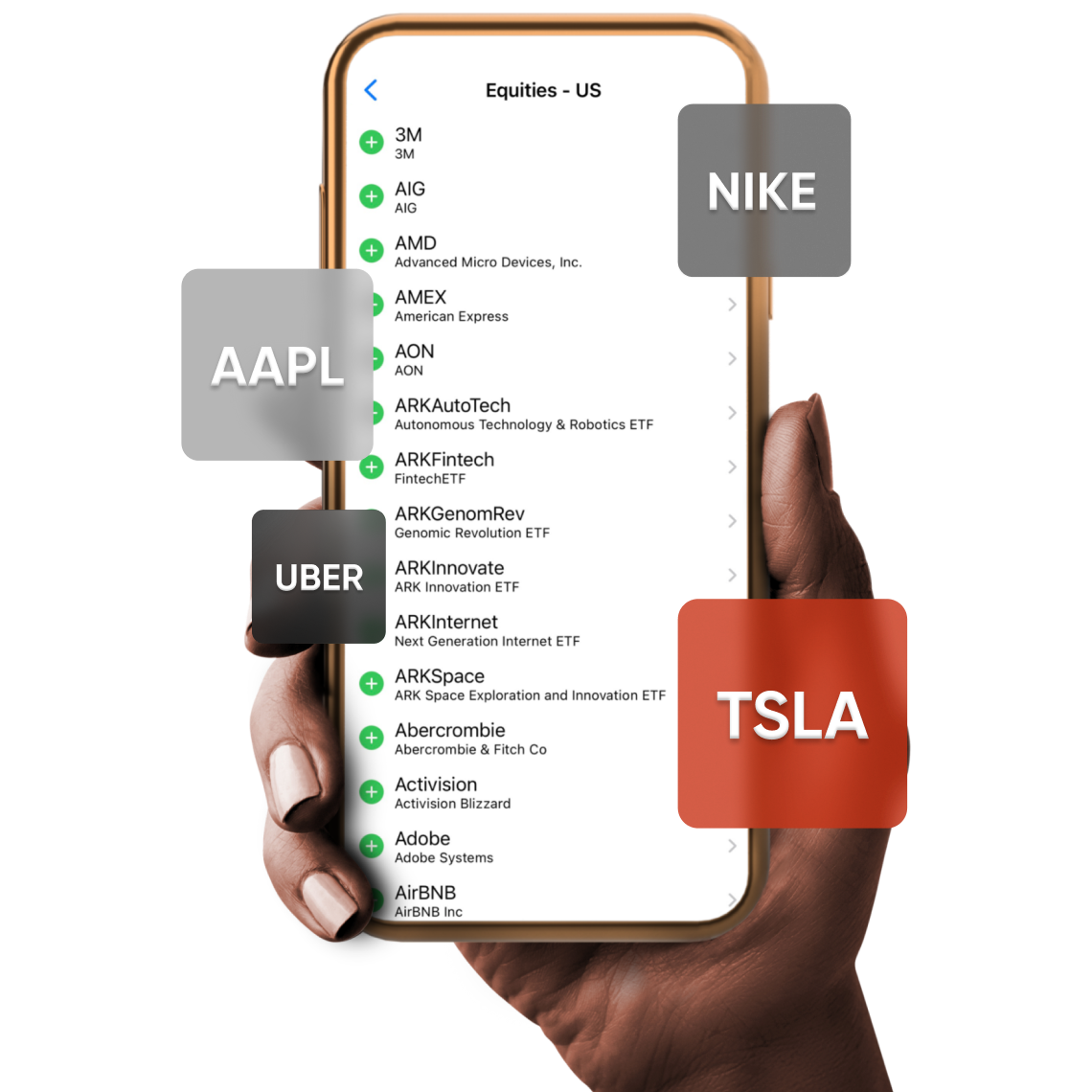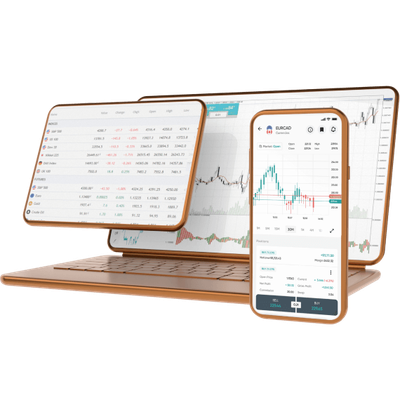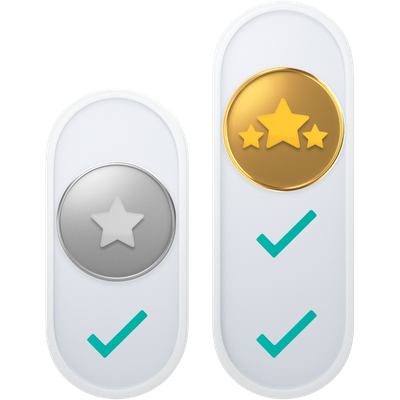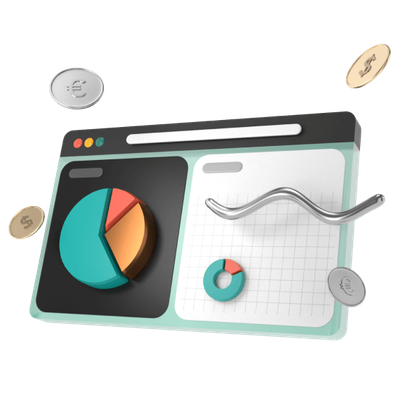Commission-free US shares
Trade the market’s hottest stocks from your mobile or desktop with leverage up to 1:20

1500+ new assets
Trade shares CFDs from around the world on mobile or desktop
Trade shares CFDs on low spreads with leverage up to 1:20
Speculate on price moves with hundreds of options in one place
Technology
Including giants like Apple, Tesla and Google
Energy
Including EVs, ESGs and carbon emissions
Financials
Including JP Morgan, BoA, HSBC and Allianz
Retail
Including Walmart, LVMH, Amazon and AliBaba
Healthcare
Including Pfizer, Merck, CVS and AstraZeneca
And more!
Trade a huge range of shares CFDs with advanced analytics
What are shares CFDs?
CFDs on shares (also known as CFD stock trading) are contracts that allow traders to speculate on the rise or fall of a company’s share price with leverage - without owning any shares directly. “CFDs” are a short way of saying “Contract for Differences” and they are a popular choice for traders looking to speculate on the rise and fall of the share prices (i.e., prices that move a lot). Shares are also known as ‘stocks’ or ‘equities’.
Shares FAQs
What shares CFDs do you offer?
We offer hundreds of CFDs on the world’s top company stocks with commission-free trading on US shares. Speculate on share prices with up to 1:20 leverage on major stock sectors like ESG, Technology, Financial, Healthcare, Retail, Fashion, Automotive, Energy, Travel, Consumer Staples, Industrials, Information Technology, Real Estate, Utilities, and Materials.
What does it mean to trade CFD shares?
CFD share trading (otherwise known as ‘equities’ or ‘stocks') means buying and selling CFDs on the shares of companies listed on a stock exchange. CFDs allow traders to speculate on the price of shares without directly owning the share and without the responsibility of being a direct shareholder.
Share CFDs are available for a wide variety of industries — so you can tap into your knowledge of specific businesses or diversify your portfolio.
What’s the difference between shares and share CFDs?
Investing in shares allows you to take partial ownership of a company. With CFDs, you are speculating on the movements of a share price without owning the underlying asset.
When investing in shares you can only go long (buy) and you can only buy whole shares. Trading CFDs allows you to both go short (sell) and go long (buy), which means you can potentially capture profits on both rising and falling prices. At Equiti, we also allow you to trade fractions of a share as a CFD, meaning you can buy or sell 0.1 share when you trade online.
Buying shares directly requires 100% of the money up front, while trading CFDs you can use leverage. At Equiti, our margins start as low as 5% (leverage of 1:20) which means that you’ll only need 5% of the cash up front or that you can trade 20 times the number of shares with the same deposit amount. However, it’s important to always remember that when both risk and rewards are equally multiplied by using leverage.
What is a ‘stop loss’ order & why should I use it?
Arguably the most popular tool for reducing risk, stop loss orders are designed to limit loss on a position that’s made an unfavourable move. When you place a stop loss order with a broker, you’re requesting to close the position once the instrument reaches a certain price. This is helpful as it means your trades need less monitoring and can help to limit losses, particularly in volatile markets.
Please also note that a stop loss is by no means a guarantee; positions may be affected by price gaps over market closures, data release or other economic factors.
How can I maximise my returns?
Trading CFDs is based on the speculation that the value of one asset will increase relative to another, which creates potential to maximise returns. However, there’s no guaranteed strategy or market that will always deliver profit. If your current broker says otherwise, check if they’re regulated!
Investing in global markets by purchasing forex, commodities, ETFs or other CFD products will free up your capital and give you the opportunity to profit - but we always encourage our clients to risk only what they can afford to lose. Markets are known to be unpredictable and adding leverage means both losses and profits can equally increase.
Which instruments are available for extended trading hours?
You can trade over 60 US Share CFDs with extended hours, from 04:01 to 16:00 (4am to 4pm) New York time. These instruments are indicated with an asterisk (*) in our full list of Share CFDs. You can find the list here.
What should I know about trading outside regular hours?
When trading outside of regular hours, liquidity may be lower, which could result in higher market volatility and wider spreads. Be sure to consider these factors when planning your trades and risk management.


